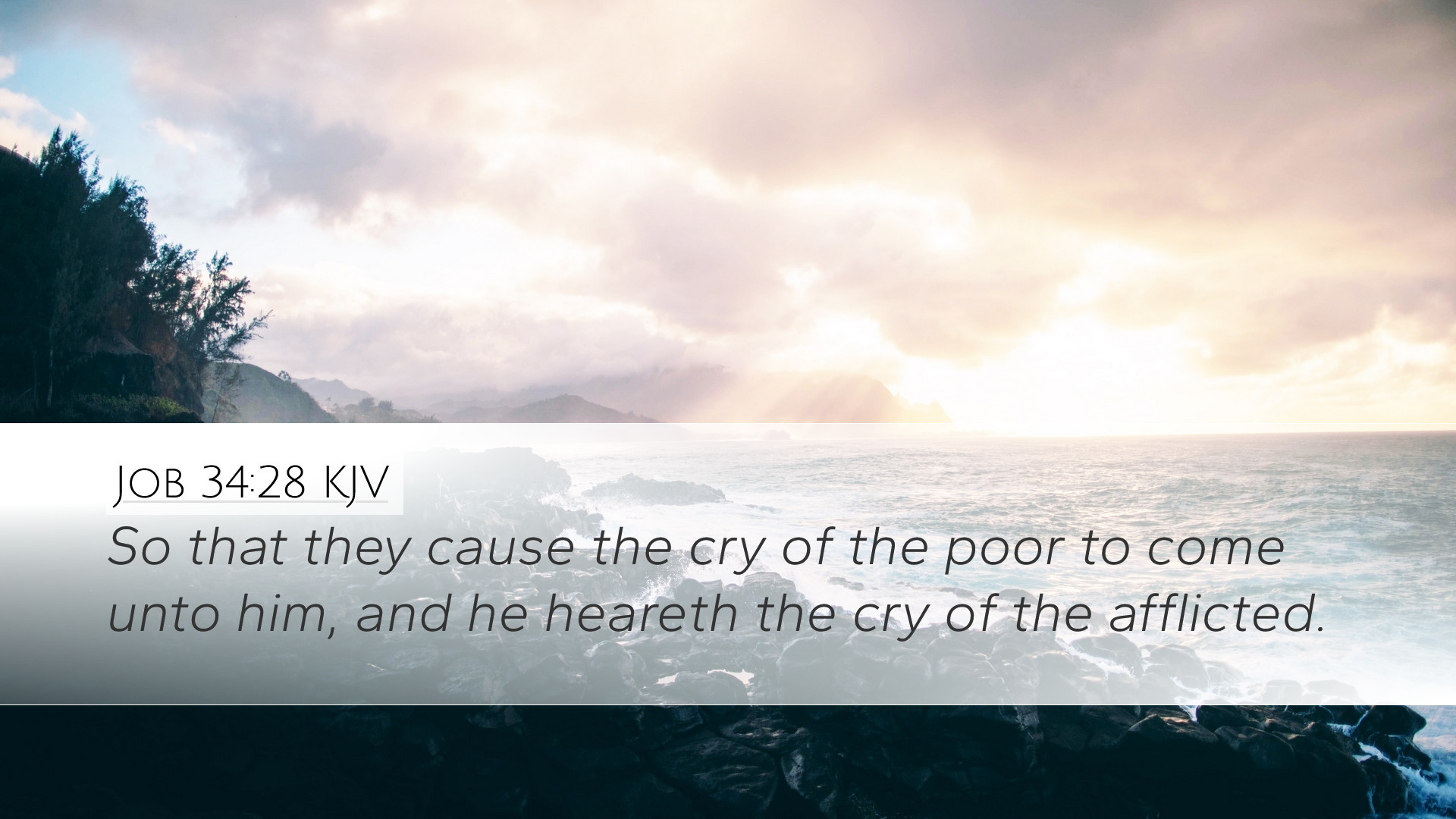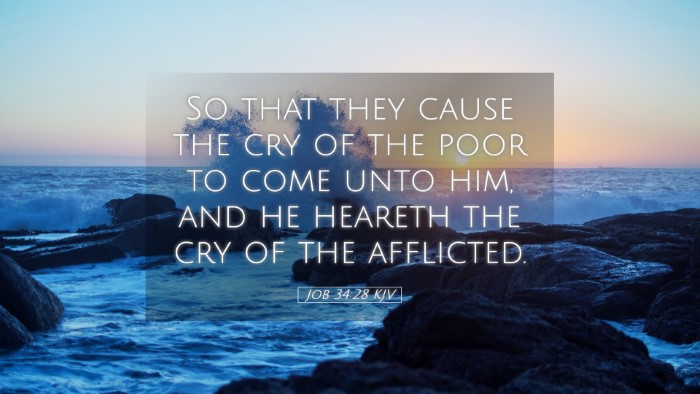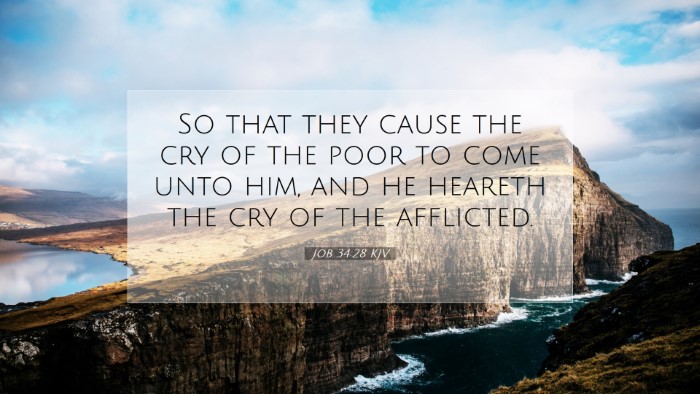Commentary on Job 34:28
Job 34:28 states: "So that they cause the cry of the poor to come unto him, and he heareth the cry of the afflicted." This verse touches on the themes of divine justice, compassion, and the response of God to human suffering. Below, we explore insights from esteemed public domain commentaries to provide a thorough examination suited for pastors, students, theologians, and Bible scholars.
Contextual Background
The book of Job is a profound exploration of suffering, justice, and the nature of God. Job, a man renowned for his righteousness, endures extreme misfortune, prompting a dialogue on the reasons for suffering and the character of God. Chapter 34 is part of the discourse by Elihu, a younger friend, who strives to clarify God's righteous governance over humanity.
Elihu’s Argument on Divine Justice
Elihu asserts that God's governance is just and that He is attentive to the cries of the oppressed. The phrase "they cause the cry of the poor to come unto him" emphasizes that God is not indifferent to human suffering but rather is moved by it. Here are some key points from various commentaries:
- Matthew Henry: Henry suggests that this verse illustrates the compassion of God towards the needy. He emphasizes that God hears the cries of the poor not only as a response to their physical suffering but also as an acknowledgment of their plight. God's listening is an act of His justice.
- Albert Barnes: Barnes interprets the verse as showcasing God's attentiveness to the injustices faced by humanity. He points out that the “cry of the poor” signifies both the literal impoverished and those oppressed by circumstance. Barnes underscores the reliability of God's justice and the importance of appealing to Him in times of distress.
- Adam Clarke: Clarke expands on the notion that God hears those who genuinely seek Him. He highlights that the “cry of the afflicted” is noted in heaven, assuring believers that their suffering does not go unnoticed. Clarke ties this into the broader theological truth of God’s constant awareness of human affairs.
God's Nature and Response to Affliction
The verse provides profound insights into the nature of God and His relationship with humanity, especially the afflicted:
- The God of Compassion: Each commentator reflects on God's innate compassion. Elihu asserts that God relates to human suffering, implying that divine justice includes responding to those who suffer injustice.
- The Suffering of the Righteous: Job’s predicament serves as a backdrop for understanding that suffering is not always a consequence of sin. This complicates humanity’s understanding of justice, urging a deeper faith in God’s overall plan.
- Divine Hearkening: The idea that God "heareth the cry" suggests an active rather than a passive divine ear. This encourages believers to bring their cries before God, trusting that He is attentive and engaged.
Theological Implications
Job 34:28 raises significant theological reflections:
- Human Suffering and Divine Justice: The verse poses challenges to traditional understandings of retribution theology, which states that good is always rewarded and evil punished in this life.
- The Role of Intercessory Prayer: Believers are reminded of their responsibility to intercede for the afflicted, echoing the call to express concern for the poor and needy, following the example set forth in this verse.
- The Importance of Social Justice: This verse calls for a commitment to social justice, urging believers to act against oppression and inequality while trusting in God's ultimate justice in times of oppression.
Practical Application
In light of this scripture, believers can consider several practical applications:
- Awareness of the Afflicted: Churches and individual Christians are called to be aware of the suffering around them and to act in compassionate ways.
- Prayer for the Needy: A dedicated practice of prayer for those who are suffering, ensuring their cries reach the heavenly realm, as encouraged by the scripture.
- Engagement in Social Action: This verse advocates for active involvement in issues of poverty and injustice, prompting the faithful to seek ways to advocate for change.
Concluding Reflections
Job 34:28 serves as a powerful reminder of God’s justice and compassion. The insights from public domain commentaries illuminate the text's richness and its implications for personal faith and community responsibility. In times of suffering, both Job and the faithful today can rest assured that their cries are heard by a compassionate God who ultimately cares for the afflicted.


